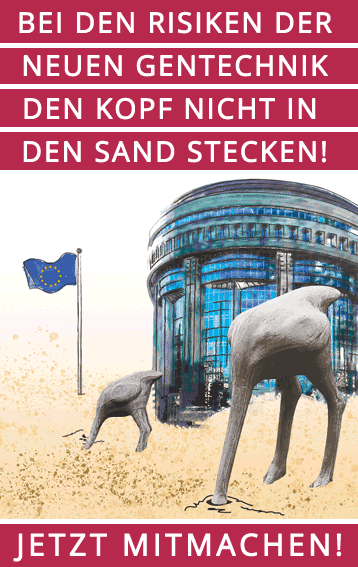MON863 maize is a product of the Monsanto company. The maize line was produced by particle acceleration (biolistic) transformation and contains the following two foreign genes:
- a cry3Bb1 gene from Bacillus thuringiensis ssp. kumamotoensis. The cry3Bb1 gene encodes a Coleopteran-specific insecticidal protein.
- a nptII gene. NptII is an antibiotic resistance marker gene encoding the enzyme neomycin phosphotransferase II
MON863 maize is currently approved for cultivation in the USA and in Canada. In several other countries, including the EU, MON863 maize is approved for food/feed uses.
In the EU, feed materials, feed additives and food additives produced from MON863 maize are notified as existing
products. In June 2007, Monsanto made an application for renewal of this authorisation. Furthermore, food and feed containing, consisting of, or produced from MON 863 maize were approved in 2006. These authorisations are valid until 2016.
MON863 maize coming under scrutiny
In 2007, Séralini et al. (2007) published a study, that involved a re-analysis of data from the Monsanto 90-day rat feeding study conducted with MON863 maize. The authors found statistically significant differences indicating liver and kidney toxicity in rats fed MON863 maize. Séralini et al. (2007) therefore stated that it cannot be concluded that MON863 corn is a safe product. Following the publication of the Séralini study, the EFSA GMO Panel published a statement on the analysis of data from a 90-day rat feeding study with MON 863 maize containing reviews and reports as well as an own extensive re-analysis of the original raw data. The GMO Panel concluded, that maize MON 863 is further considered as safe product. However it has to be stated in this respect that no new data have been investigated but only statistical re-analysis of the original data have been carried out. According to the Austrian Competent Authority these data were not generated applying state of the art methodology and as a consequence all statements ensuring the safety of the product, which are based on these data, cannot be regarded as sound scientific proof for the human and animal safety of MON863 maize. On 16 July 2008, Austria invoked the safeguard clause to ban the import of MON863 maize on its territory. Austria provided detailed reasons listed in a supporting document. According to the ordinance which introduced the safeguard measure the prohibition of MON863 maize will expire by October 1st 2010.
After the publication of the Austrian ban EFSA was requested by the European Commission to provide a scientific opinion on the statement and documents submitted by Austria. In June 2009 the GMO Panel published its opinion stating that no specific scientific evidence, in terms of risk to human and animal health and the environment, were provided that would justify the invocation of a safeguard clause.
MON863 is banned in Austria




